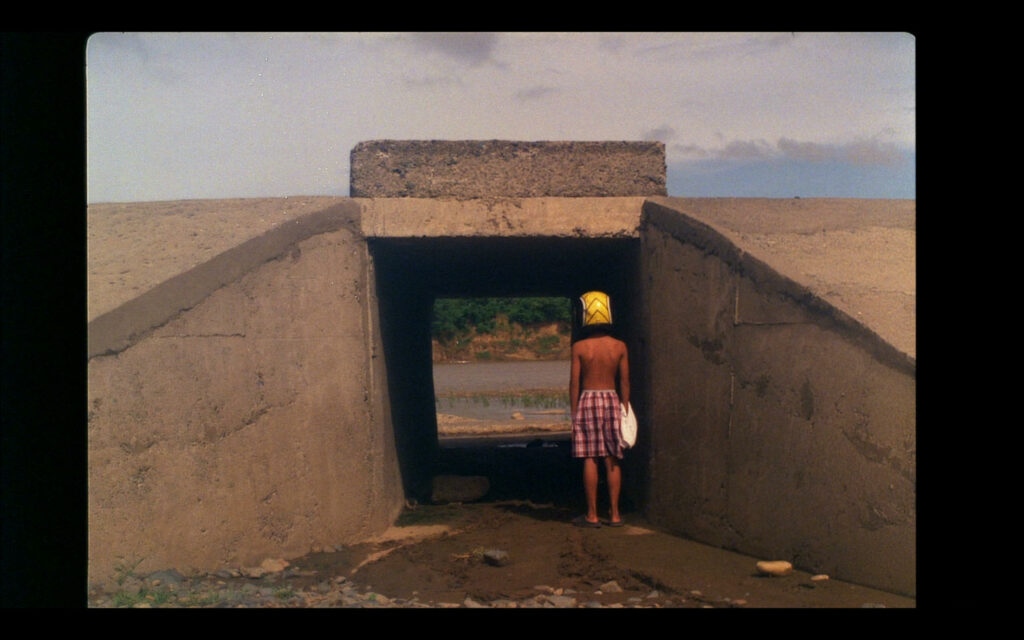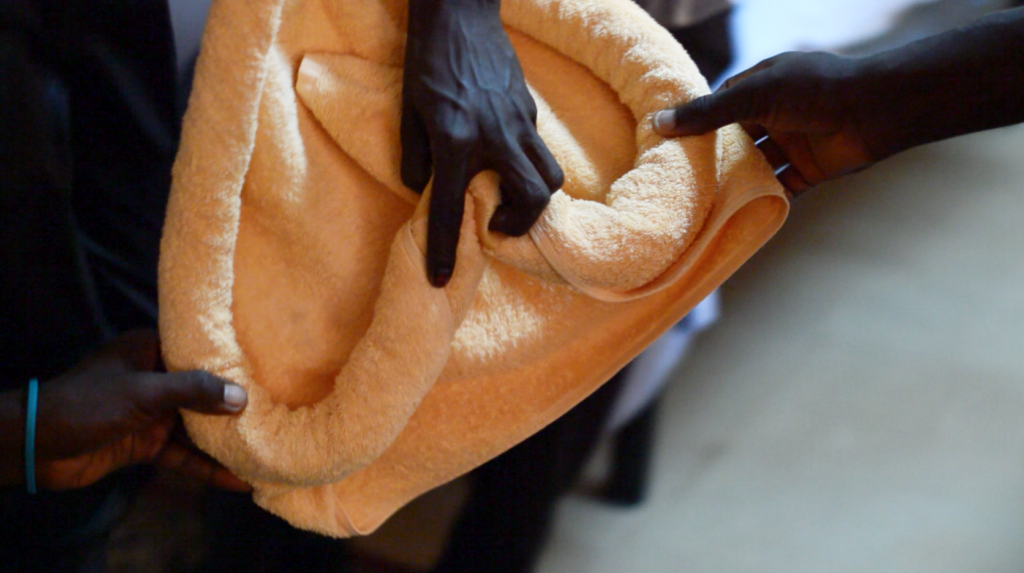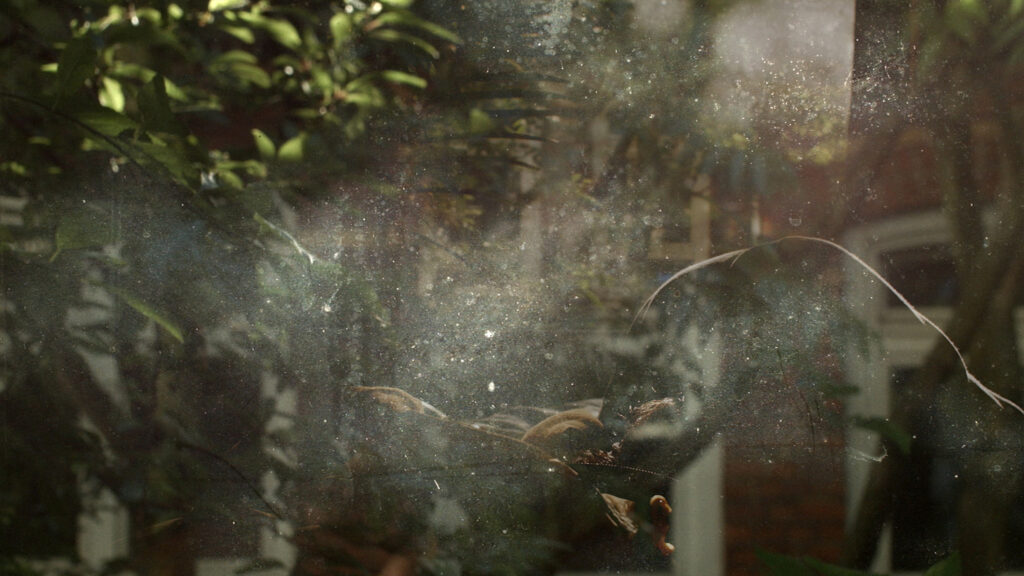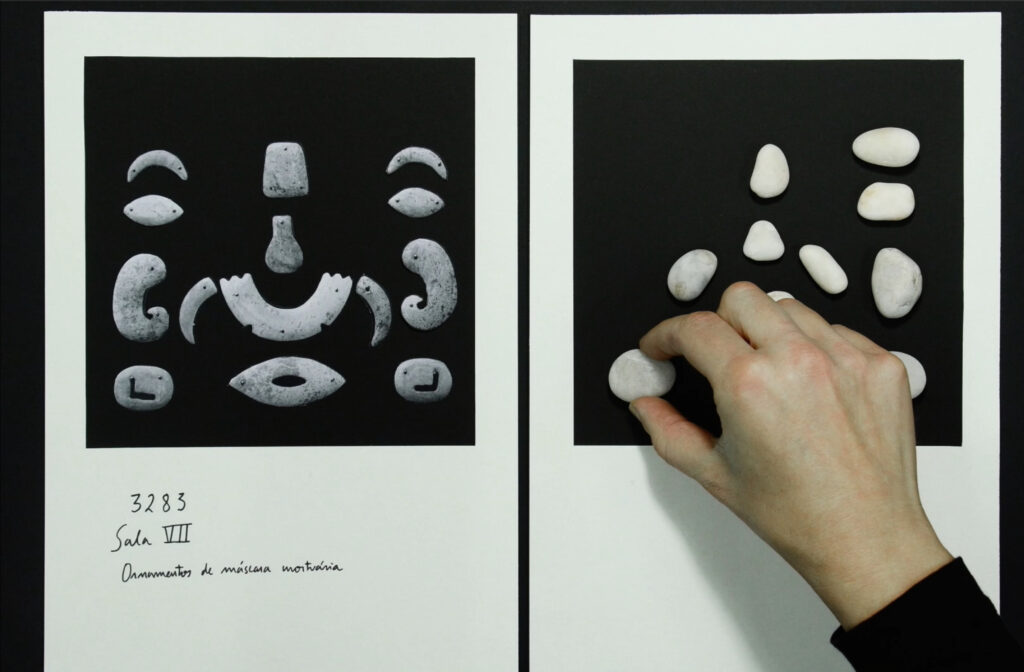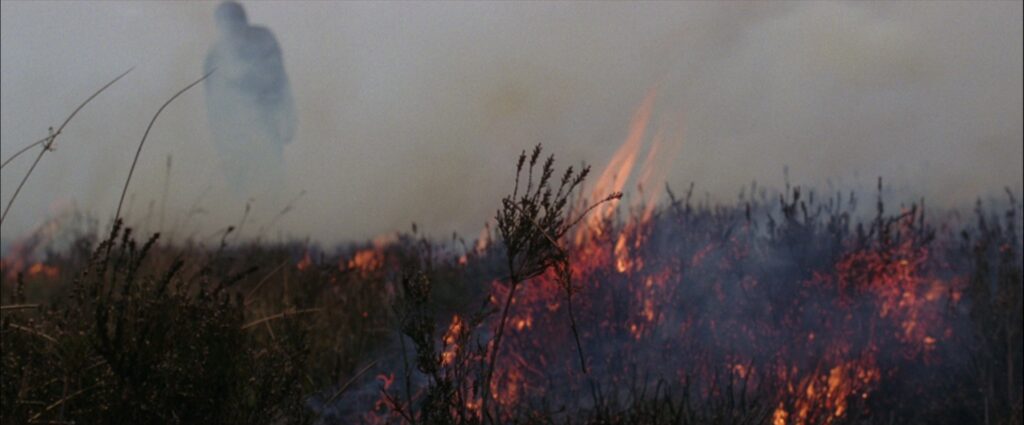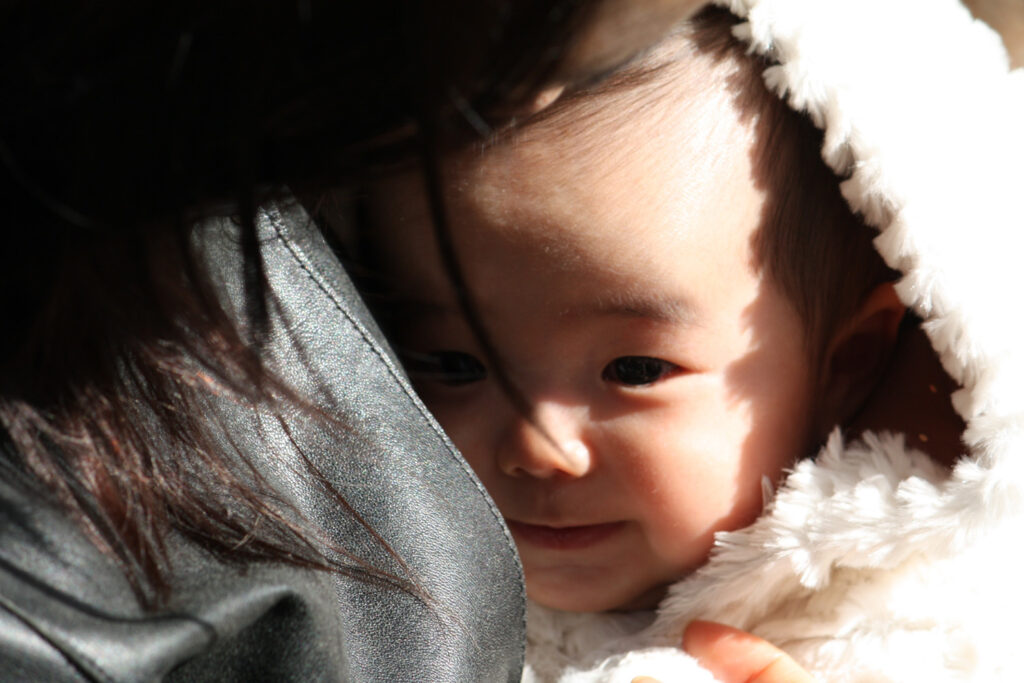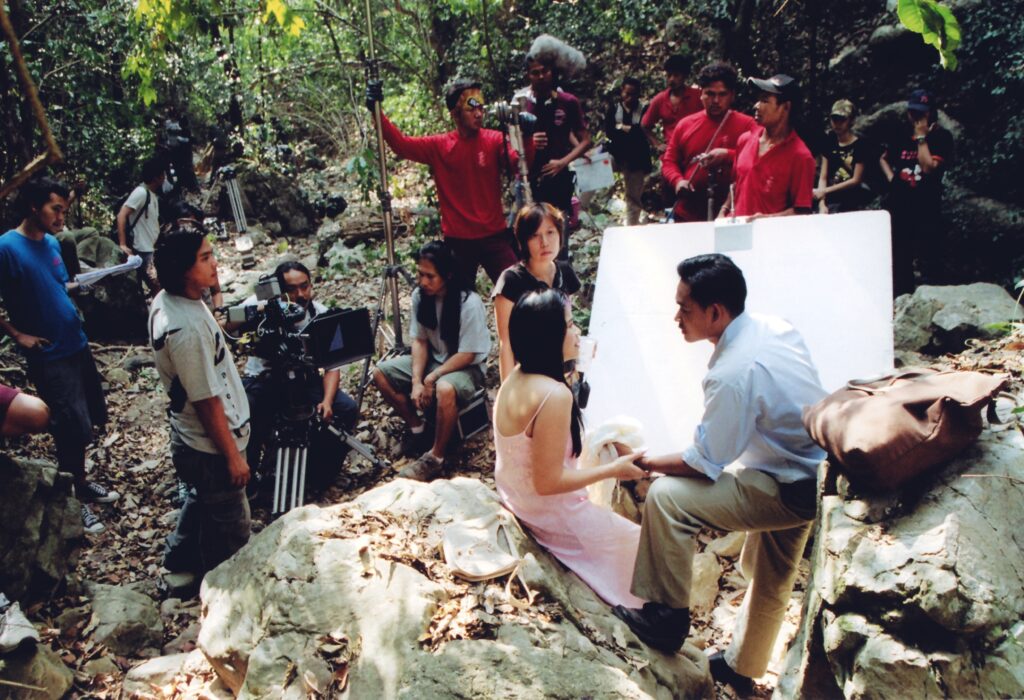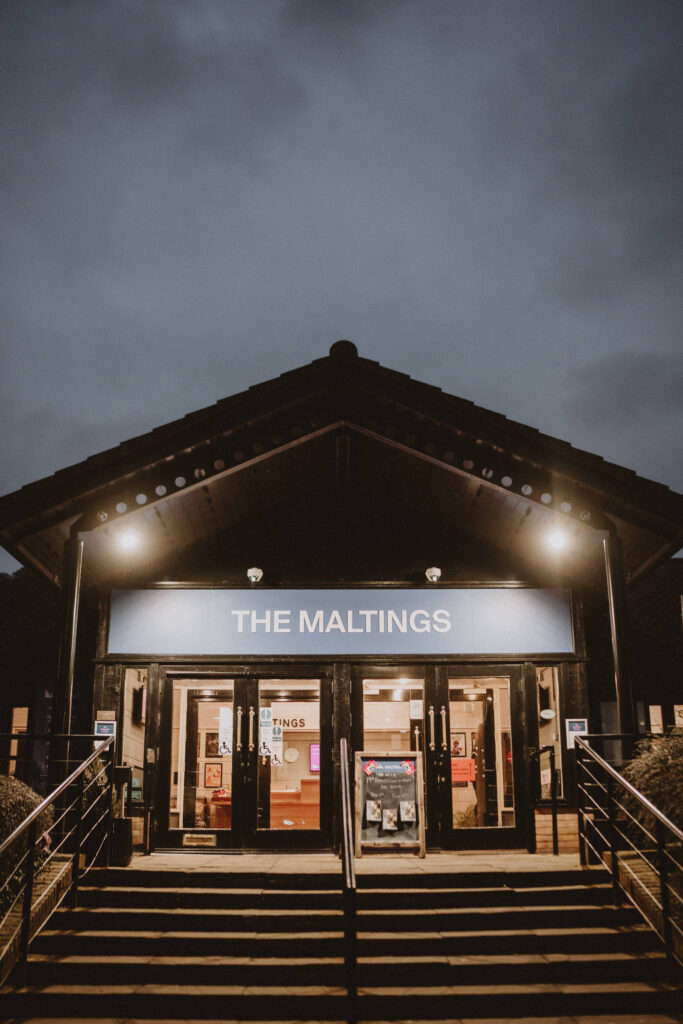
Maltings Main House
Located on Eastern Lane, The Maltings is the Festival’s main hub. The Main House is a traditional cinema with seating for over 300.
‘Lukas, in the middle of the film, the actress will pay a visit. You’ll fall in love with her. And you’ll understand your father. I’ll become your memory. I haven’t shown you the middle yet’. Thus begins John Torres’s latest dream of a documentary, a highly experimental, gloriously free-form coming-of-age story. Shortly after the arrival of a film crew that throws his tiny, usually quiet village into a frenzy of commotion, Lukas’s father, Mang Basilio, announces that he is a ‘tikbalang’, the half-horse, half-man of Filipino folklore. When Mang Basilio disappears, the awkward, baffled Lukas sets out on a journey of self-discovery that will include a ‘river of forgetting’, invisible voices and a hallucinatory blurring of reality and fantasy. Torres has already carved out an idiosyncratic niche for himself in the thriving world of documentary-fiction hybrids, and this is his most personal and expansive work to date. — Film Society of Lincoln Center
Q&A with filmmaker John Torres
Translation, transformation and transition: the final 2018 Berwick New Cinema competition programme focuses on shifting perspectives, the tension between the real and the virtual, and the relationship between mental and physical landscapes.
Q&A with filmmakers Tako Taal & Callum Hill.
Naomi Kawase is amongst the most renowned of contemporary Japanese filmmakers and Genpin is a sensually shot documentary revelation. In the heart of a dense Okazaki city forest, we follow Dr. Tadashi Yoshimura, midwives and expectant mothers during four seasons at a natural childbirth clinic. Employing centuries old practices that often run askew from contemporary medicine, Kawase’s tender film oscillates between the intimate moments of joy, pain and doubt in honouring this way of life.
The title Genpin recalls the words of the Chinese philosopher Lao Tzu: ‘The valley spirit never dies / It is named the mysterious woman (genpin).’ In the film, Yoshimura reflects on the relationship between childbirth and death, and observes—more as a human being than a doctor—that to deny death is to deny life. Life born into this world, life that ends at the moment of birth, life that ends before birth. Lives do not cease as a solitary life but are carried on by the species, and continue. Through the flux of the Japanese seasons, Naomi Kawase entered the circle of the women giving birth at the Yoshimura Clinic and the world of Dr. Yoshimura—who has spent 40 years on the path of natural childbirth—and wove the footage she shot with her own 16mm camera into this film.
A couple escape from their families and flee deep into the jungle. At nightfall, a song illustrates the innocence of their love and their search for happiness. Palme d’Or winning filmmaker Apitchatpong Weerasethakul invited fellow Thai filmmaker Pimpaka Towira to shoot a 35mm film in the forest while he observed the production though his digital camera. While Worldly Desires is dedicated to Weerasethakul’s memories of filmmaking in the jungle from 2001–05, it is also a story of forbidden love and desire, loaded with poetry, metaphor and mystery.
Set in 1987, soon after the People Power Revolution which led to the fall of president Marcos, Nervous Translation follows eight-year-old Yael. A shy and uneasy girl, she listens endlessly to the cassette tapes recorded by her father, who has spent years away from home working in Saudi Arabia. When she hears an advertisement for a pen that will give her a ‘wonderful life’, she decides to spend all her savings on this miracle pen.
Yael’s world is small and tender—she likes to play cooking on her mini stove—but the real world comes knocking: a typhoon approaches the Philippines. Giving a voice to this quiet girl in a perceptive, playful film full of jump cuts, sensitive sound design, ’80s music and even an odd surrealist intermezzo, Seno empathetically captures the innocence and uncertainty of a child who doesn’t yet understand the world, although she is surrounded by it.
Introduction by filmmaker Shireen Seno
UK premiere of Nervous Translation presented jointly by BFMAF and Tate Modern
The film will be preceded by the 2018 Berwick New Cinema award presentation


